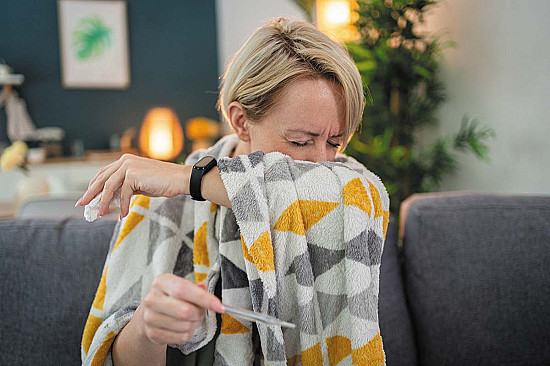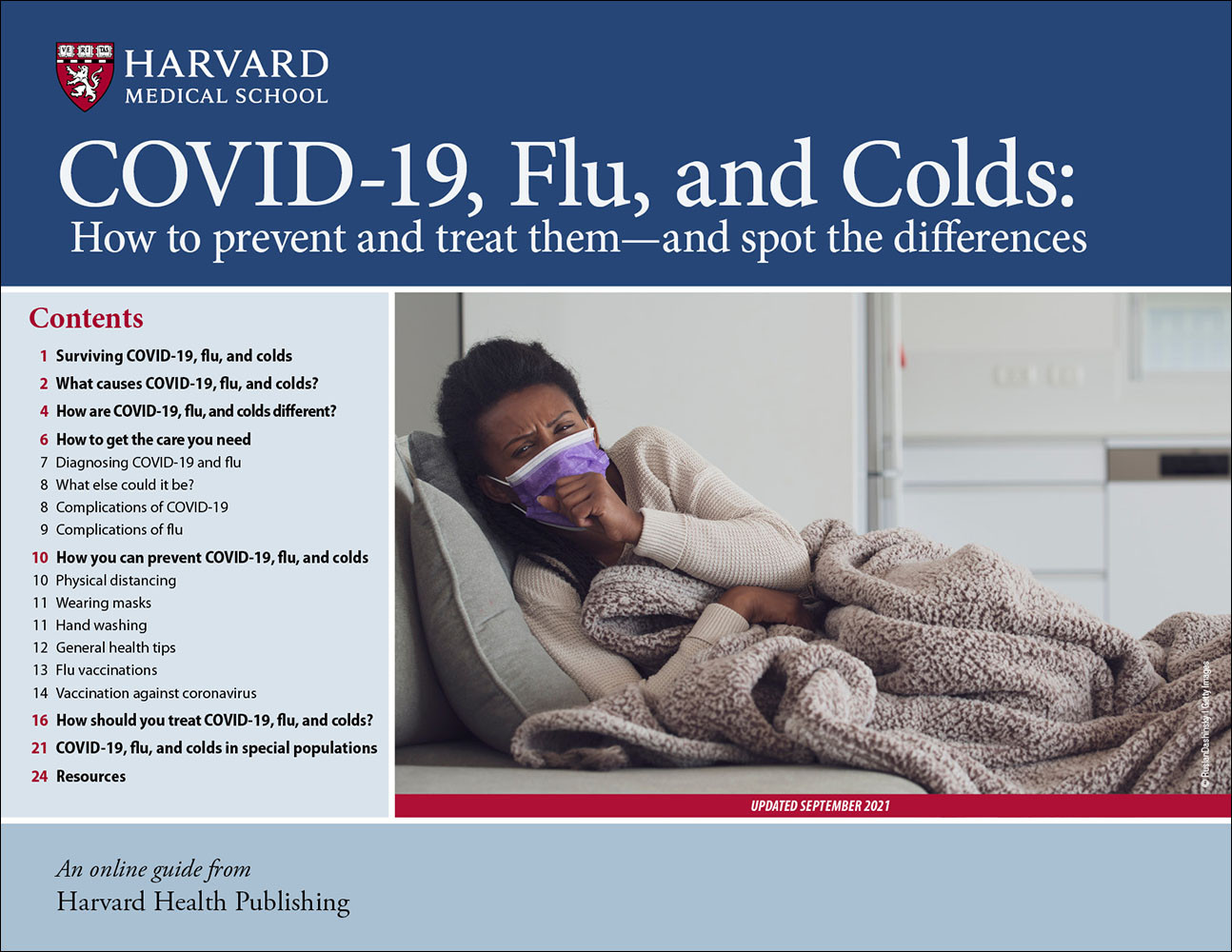Why are cold symptoms worse at night?
Ask the doctor

Q. My cold symptoms seem to be improving during the day, but at night they get worse again. Why does that happen?
A. Frustrating, isn't it? But you're not imagining that your cough and congestion ramp up just when it's time to hit the hay. The circadian rhythm — our 24-hour internal clock — signals immune cells to become more active at night. When these cells pinpoint germs, they fight them off by creating inflammation, which makes respiratory symptoms worse.
The hormone cortisol, which regulates the body's stress responses, is also to blame. Cortisol levels rise the morning, helping suppress inflammation and reduce cold symptoms. But lower levels of cortisol at night enable symptoms to flare again. And lastly, the act of lying down — as welcome as it is — to get shut-eye also contributes to worsened cold symptoms by allowing mucus to pool at the back of the throat.
Cold symptoms, including coughing, usually dissipate in five to seven days. If you have a cough that doesn't improve within three weeks, see your doctor to make sure something else isn't contributing.
Image: © Guido Mieth/Getty Images
About the Author

Toni Golen, MD, Editor in Chief, Harvard Women's Health Watch; Editorial Advisory Board Member, Harvard Health Publishing; Contributor
Disclaimer:
As a service to our readers, Harvard Health Publishing provides access to our library of archived content. Please note the date of last review or update on all articles.
No content on this site, regardless of date, should ever be used as a substitute for direct medical advice from your doctor or other qualified clinician.
















